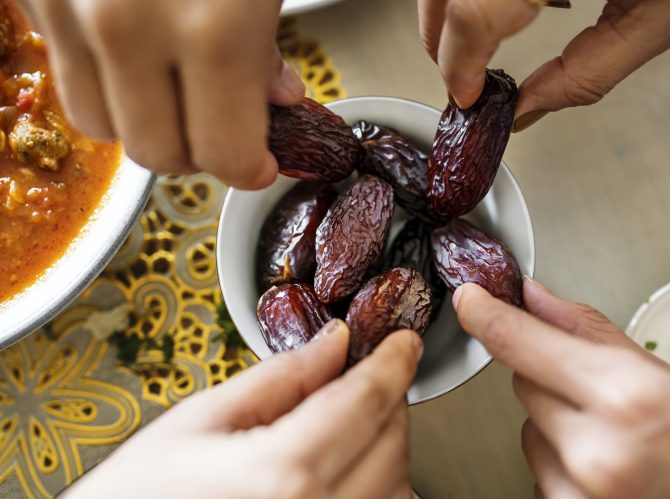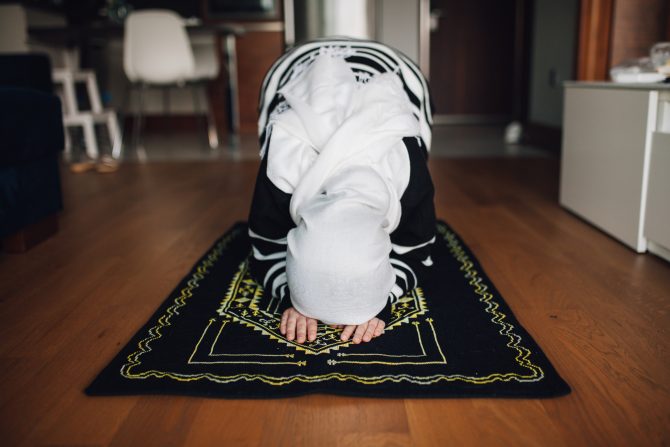Last week, you might have seen friends on social media wishing each other and everyone a Ramadan Mubarak, as the Muslim holy month began on Thursday at sundown. For the next lunar month, our practicing Muslim friends will be spending their days continuing to pray five times a day while also engaging in reflection and—for those who are able—fasting. Contrary to popular thought, this doesn’t mean Muslims go a whole month on water alone. They are able to eat before dawn, when they are already awake for their first prayer of the day, and then would usually gather for Iftar, the meal and prayer celebration after sunset. This year, of course, practicing Muslims in the United States are not able to gather for prayer or their meal, but maybe by the time Eid al-Fatr comes around on May 23, some will be able to gather in more than their family units.

But first, Islam
Islam is the third and most recent arm of the triad of major religions that believe in the same one God. Like Christianity, its tenets are based in some of the traditions of Judaism (as well as Zoroastrianism, another ancient and popular religion founded in the westernmost regions of Asia), with some changes based on the visions and teachings of the Prophet Muhammad. In a time and place where the primary religious practices were based on polytheistic idolatry, Muhammad ibn Abdullah, visited several times by the archangel Gabriel (or Jabra’il in transliterated Arabic), would take the prophecies and teachings that came from those visitations to develop the sura of the Qur’an, the Islamic holy book. He began to gather followers, beginning with his wife Khadijah, but the group was persecuted to the point of having to leave Medina, spreading the religion as they went. By the time of his death, Islam had countless members, and within less than a century it was the most widespread religion in the region. Now, it’s the second-largest religion in the world, following Christianity, with multiple sects and belief groups around the globe.
Now, what’s Ramadan?
It is said that it was during Ramadan that Allah revealed the words of the Qur'an to Muhammad, and devout practicing Muslims are required to fast during the day as informed by the Five Pillars of Islam. In essence, Ramadan is a month of atonement and self-restraint. The ninth month of the Muslim calendar, it continues until Eid al-Fitr, a festival holiday and one of the biggest days of the Muslim calendar. Because it relies on a lunar calendar, it can begin anytime of the year, and has, in our lifetimes, begun in both January and December.
Focusing on the fourth Pillar of Islam, Muslims spend Ramadan not only fasting from food and drink during the day, but also sexual activity, negative thoughts about others, and lying, among other things considered to be sinful. It’s also a time in which Muslims dedicate more of their time to reading the Qur’an, contemplating their own lives, and praying more deliberately.

Basically, it’s the time to purify heart, mind, and body, so that the sins of the previous months will be forgiven.
Read more:
Ramadan in the Britannica Library
Islam in the World Encyclopedia of Religions


